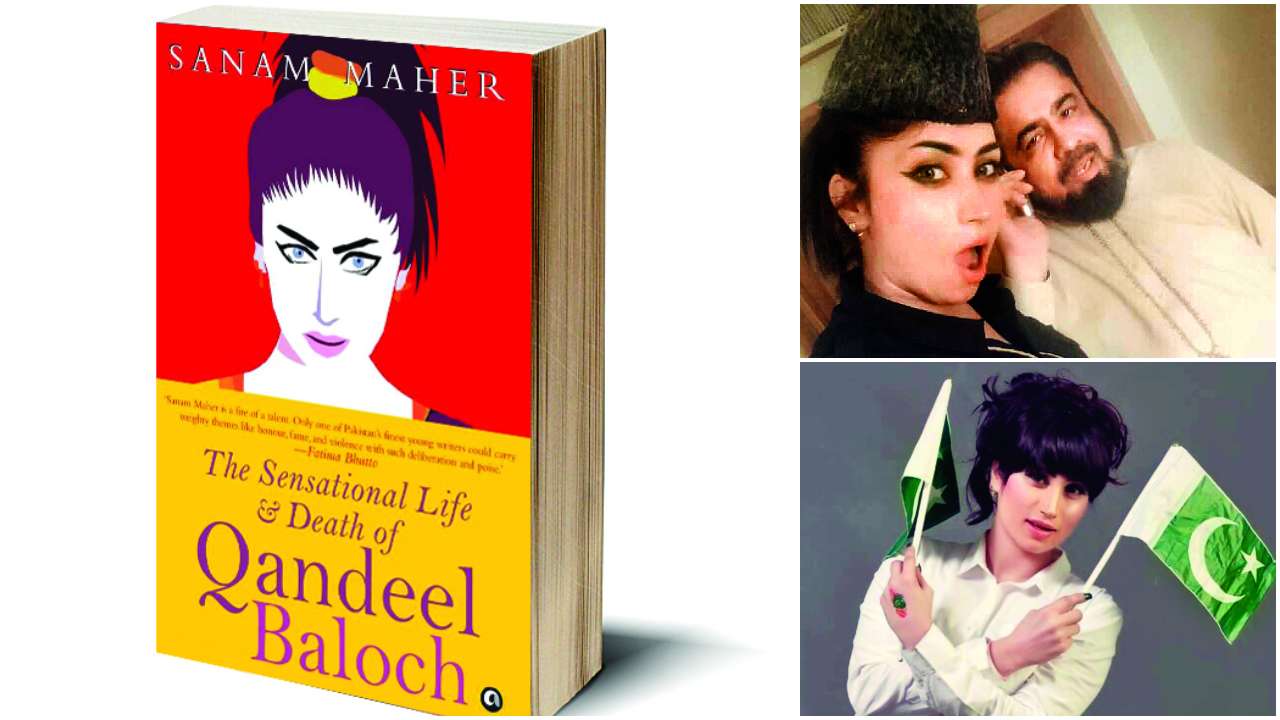
Book: The Sensational Life & Deacath of Qandeel Baloch
Author: Sanam Maher
Publisher: Aleph Book Company
Pages: 272
Price: Rs 213
From the orthodox, Pakistani point of view, it's the story of a woman who thumbed her nose at almost every norm of accepted behavior, and paid the price for it. She couldn't be posting the blatantly sexual selfies and videos of herself on social media, promising to strip dance for the cricket team if it won or challenging maulvis on television without repercussion – was the view frequently expressed by many in Pakistan after her murder. As one woman tweeted, "Finally #QandeelBaloch murdered. Someone had to do it. She was disgrace for the country…"
But who was the real Qandeel Baloch? How did this little-educated girl from a poor conservative family in a small town in Multan become 'Pakistan's Kim Kardashian'? What gave her the gumption to stand up to the media and clergy, to cock a snook at the condemnation and death threats? How did she come to mouth those three words –'How I'm looking?' – that broke the Internet in Pakistan in 2015? What kind of person was she, who were her parents, her friends, and her colleagues? More importantly, how did she come to be murdered, and how is it that her parents are determined to see the murderer, Qandeel's brother Waseem, their own son, hanged for the crime?
After all, in Pakistan killing for 'honour' was condoned not just by society, but also by law. (The law has since been amended, and Qandeel's death was one of the triggers that led to it.)
Sanam Maher's book is an attempt to sketch answers to these questions.
Surprisingly, for all that she had put of herself out into the world, very little was known of Qandeel's 'real life' until some months before her murder. For instance, no one knew that her real name was Fauzia Aseem; that she was the principal breadwinner of her family, supporting her elderly parents and siblings; that she had been married and had a son.
Moreover, Maher found an intense media interest, especially from outside Pakistan. Several people had come forward, who all claimed to know Baloch, and gave conflicting accounts of who she was. Closely intertwined with this were all the 'part truth, part lies and exaggerations' that she had created – a fictional image of who she was to tie in with the image she projected on social media.
To separate these jumbled skeins and to fill in the gaps, Maher spoke to the people whose life Baloch touched – Adil Nimazi, the rookie TV reporter who was the first to visit her home after her murder; Safdar Shah, her parents' 'lawyer' who seems to have found a career as a go-between for visiting media persons; the in-charge of the shelter where Qandeel, still in her teens, took refuge after running away from her abusive husband; the manager of the bus depot where she found her first job as a hostess; Mec – Media Event Coordinator – who gave her a break in modelling and became a close friend; and lastly, Mufti Qavi, the cleric whose controversial meeting with her was probably her death knell.
In a bid to capture the context of Qandeel's rise, Maher digresses – often at great length. There's a description of Pakistan's social media scene and internet laws; the modelling industry, and how it exploits women like Qandeel; Arshad Khan, the 'chaiwala' with model-like looks whose instant celebrity parallels Qandeel's; and so on. These sections are tangential to Qandeel's story, and somewhat tedious too. But setting aside these, the book becomes a minute, critical and inside view of contemporary Pakistan itself.